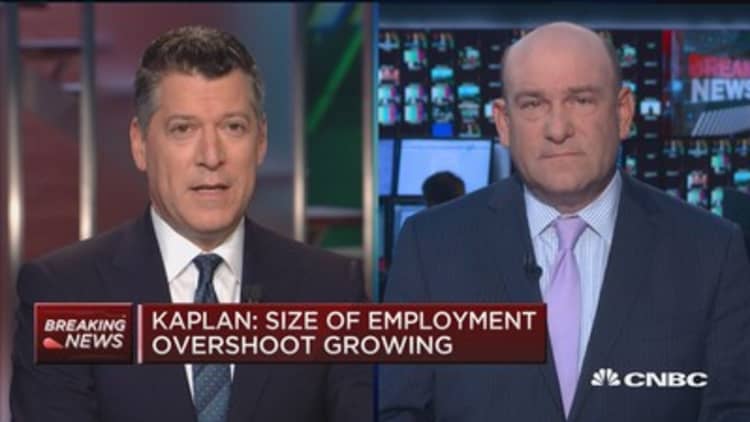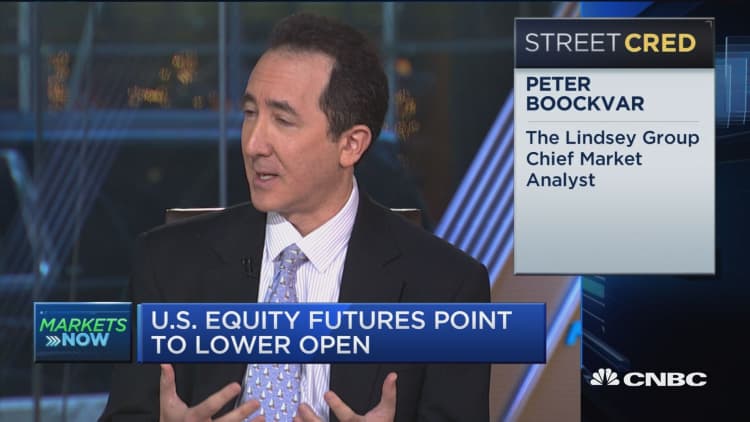
Concern over stock market values is growing at the Fed, with one official worrying that waiting too long to tighten policy could have more serious effects later.
In an essay released Monday, Dallas Fed President Robert Kaplan warned about "excesses" in the economy, pointing specifically to stocks and the government debt. The market cap is at 135 percent of GDP, the highest since 1999-2000, just as the dot-com bubble was about to pop, the central banker said.
"I am aware that, as excesses build, we are more vulnerable to reversals which have the potential to cause a rapid tightening in financial conditions, which in turn, can lead to a slowing in economic activity," Kaplan wrote.
"Measures of stock market volatility are historically low. We have now gone 12 months without a 3 percent correction in the U.S. market.," he added. "This is extraordinarily unusual."
His comments echoed those made at the Federal Open Market Committee's most recent policy meeting on Oct. 31-Nov. 1. Minutes from that session, released last week, showed members concerned about "imbalances" in the financial markets that ultimately could lead to a "sharp reversal" that would have substantial effects.
Kaplan is a voting member on the FOMC, though he will not be in 2018. He will, however, still provide policy input, and indicated he is in favor of the Fed hiking rates "in the near future," part of what he hopes will be "gradual and patient" removal of the historically high level of accommodation the Fed has provided since the financial crisis.
The market is pricing in a near-certainty of a rate hike at the committee's December meeting.
"I would like to avoid a situation where the FOMC is playing 'catch-up' in raising interest rates," he said.
In addition to stocks, Kaplan pointed out that corporate and government debt levels have been rising rapidly.
But he's less concerned with corporate America's balance sheet than he is with the government's $20.5 trillion in IOUs. Of that total, the public owes $14.9 trillion, which is about 75 percent of GDP.
"In my view, the projected path of U.S. government debt to GDP is unlikely to be sustainable —and has been made to appear more manageable due to today's historically low interest rates," Kaplan said.
All of that is happening as the economy is nearing full employment and not far from exceeding that level, defined as the point where all adults willing and able to work have jobs. "Monetary policy accommodation is not 'free,'" Kaplan said, adding he is worried that waiting too long after the full employment threshold is crossed also will have costs.
"There are surprisingly few historical examples of 'soft landings' in cases where employment has risen above its maximum sustainable level," he said.



